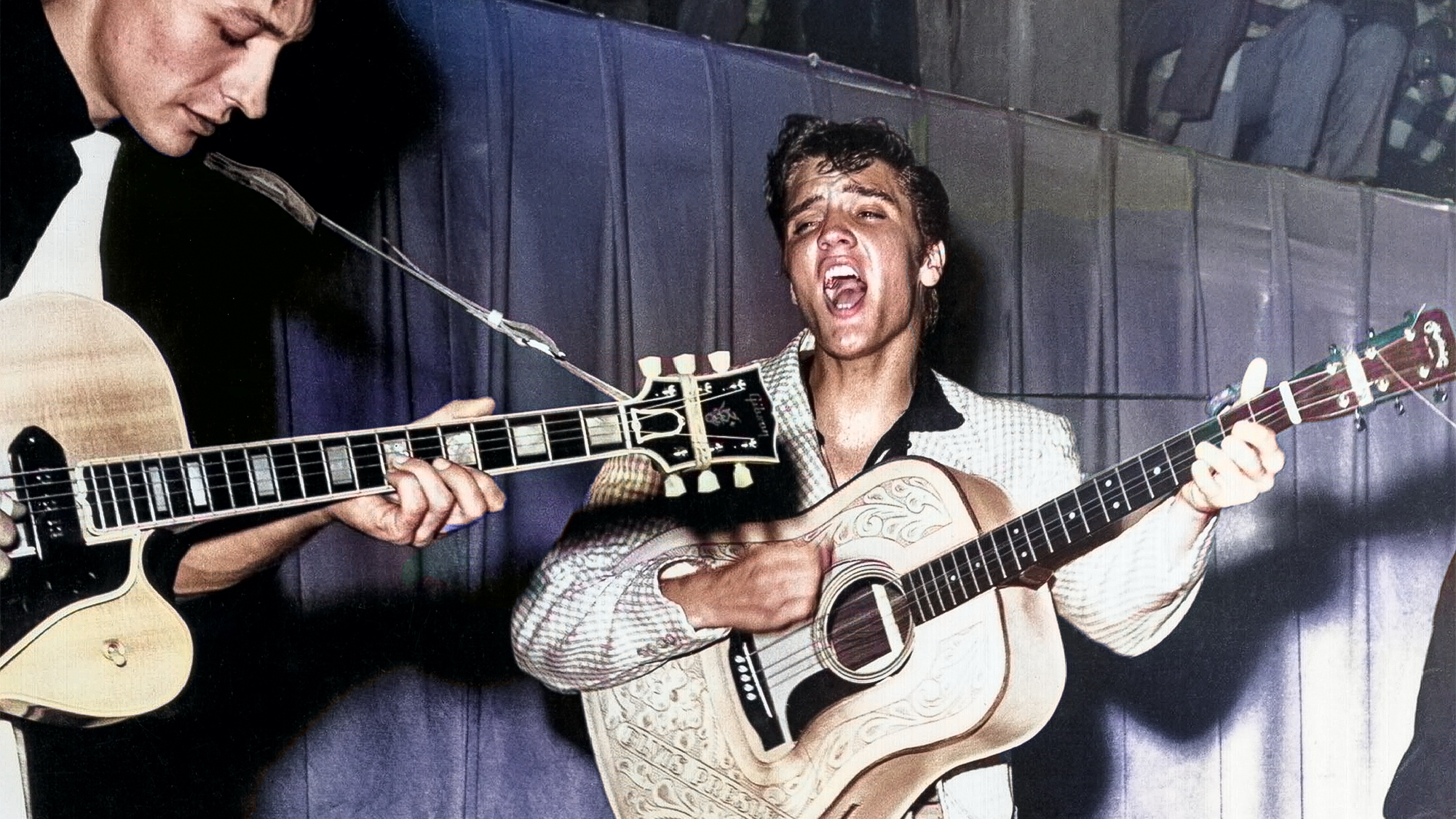“I don’t care if you suck, and I don’t care if you are frigging brilliant. If I see you love it, I'll do anything to help you.” Tommy Emmanuel reveals everything you need to know about his upcoming Guitar Camp U.S.A.
Presented by Dreamcatcher Events this October, the camp is a hands-on learning experience unlike any other, featuring the acoustic virtuoso and other noted guitarists
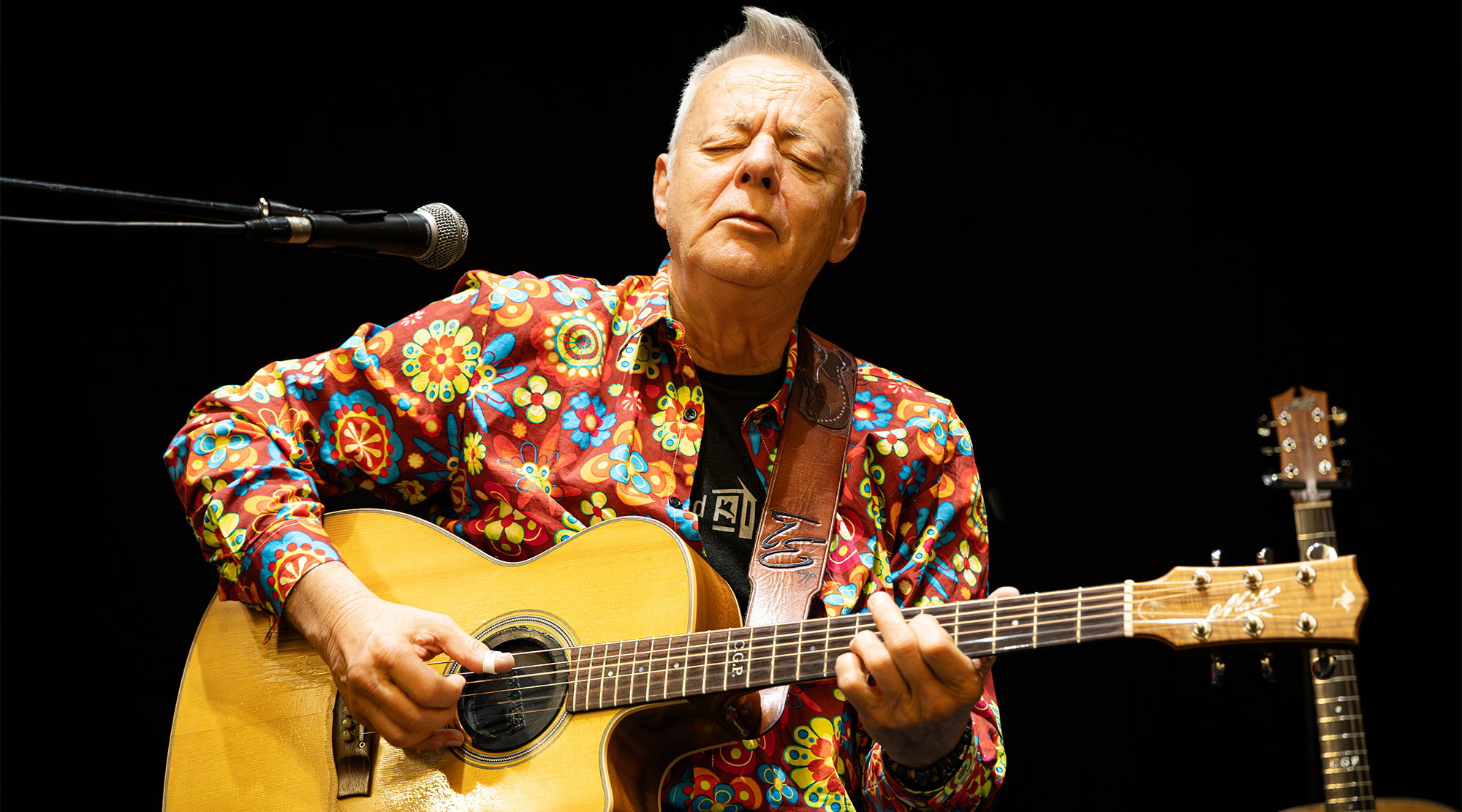
All the latest guitar news, interviews, lessons, reviews, deals and more, direct to your inbox!
You are now subscribed
Your newsletter sign-up was successful
“Welcome to the camp, I guess you all know why we’re here.”
In the Who’s Tommy, camp ends in revolution. At Tommy Emmanuel’s Guitar Camp U.S.A., the goal is revelation.
Happening October 9 through 12 in downtown Nashville at the Embassy Suites, it features Emmanuel in the role of head professor along with a stellar faculty including fellow Certified Guitar Player John Knowles, Little Feat’s slide ace Scott Sharrard, jazz master John Pizzarelli, fingerstyle virtuoso Richard Smith, troubadour Anthony Snape and young fingerstyle whiz Parker Hastings. Jazz great Julian Lage and southern rock sister duo Larkin Poe will also be appearing as special guests.
“I love doing these camps, and I choose experienced teachers that will bring their best,” says Emmanuel, who recently released his latest album, Live at the Sydney Opera House. “That said, I want the lion's share of time with all the students myself.”
Founded by Danny Heaps in 2014, Dreamcatcher Events specializes in immersive camp experiences. Jason Shadrick — a 15-year editor at Premier Guitar who now works full time with Dreamcatcher — explains the approach.
“It gives people a chance to have close encounters with some of the greatest artists in their field,” says Shadrick, who has served on the faculty at three camps for Joe Satriani, John Petrucci and Cory Wong.
“For example, Chris Thile is a lot of mandolin players’ favorite, and at his acoustic camp he went person to person, putting his hand on their picking hand, and offering advice on exact pick angles.
All the latest guitar news, interviews, lessons, reviews, deals and more, direct to your inbox!
“And at Petrucci’s camp, players got a chance to play Dream Theater songs in front of him and [drummer] Mike Portnoy.
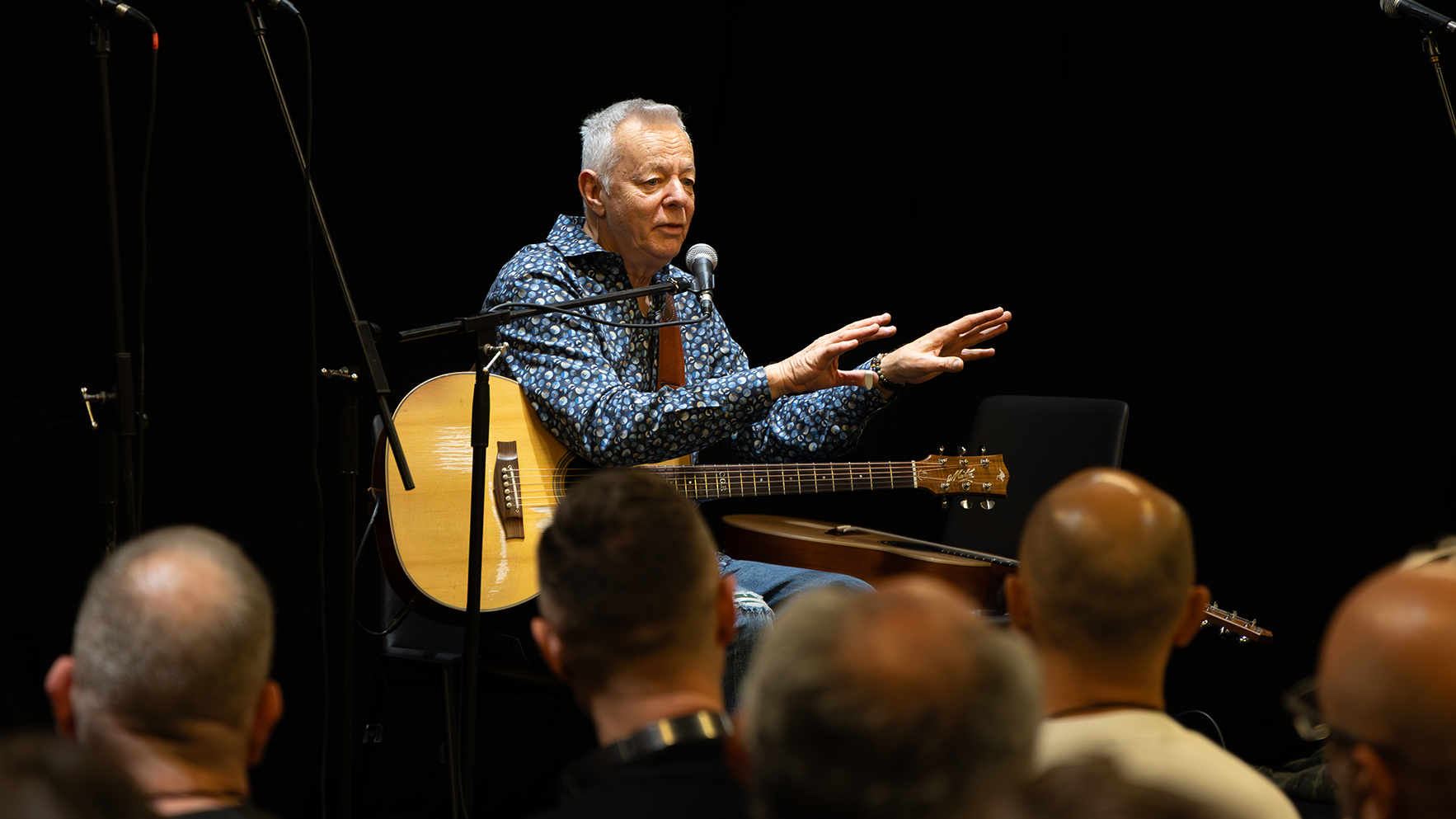
“And it goes beyond playing. On one of the nights at the Petrucci’s camp there was a barbecue, and John manned the grill!”
Shadrick says students will have ample access to Emmanuel to learn about everything from technique to the art of solo guitar performance. “If you’ve ever wanted to spend a few minutes asking him a question or having him show you something up close, he’s there for you.”
Registration includes evening performances by Emmanuel and the faculty — including tickets to see Emmanuel perform at the fabled Ryman Auditorium — plus opportunities to perform with Emmanuel and the faculty and be selected for a personal mentor session with Tommy or a faculty member.
Visitors will also enjoy intimate breakout groups for all skill levels, special appearances and workshops led by Larkin Poe and Julian Lage, open mics for campers every night, and four-night accommodations at the Embassy Suites, plus all meals for the entire event.
We caught up with Emmanuel for his personal perspective.
Each day starts with having breakfast together, and then I take the entire group for two hours. It’s not scripted.”
— Tommy Emmanuel
What’s your approach as an educator?
Each day starts with having breakfast together, and then I take the entire group for two hours. It’s not scripted. I usually start by playing some tunes to get everybody motivated. Then someone will ask a question, and away we go.
Sometimes I want to talk about songwriting and arrangement. I pick a familiar song and do an arrangement right in front of them, explaining all the reasons why I’ve chosen to do it in a particular key. As I’m playing through, I might decide it needs a key change and explain how to do that. I get a chance to hand on to them a lot of the skills that I've learned from listening to accomplished arrangers and keep it interesting.
What’s a common question on day one?
People want to know about what I do on a normal day on the road. [To find out, visit our feature on Tommy’s gig-day routine.] The question asked most is, “What do you do on a day off?” I tell them, “I usually play the guitar.” [laughs]
Is there a particular element you always cover?
One thing I make sure to cover is being an accompanist. I try to get it across to the all the students that your priority is to be a good listener. You’ve got to learn the arrangement and play your part in a supportive way that makes the person playing the melody feel like they can trust you with the time and how the song goes.
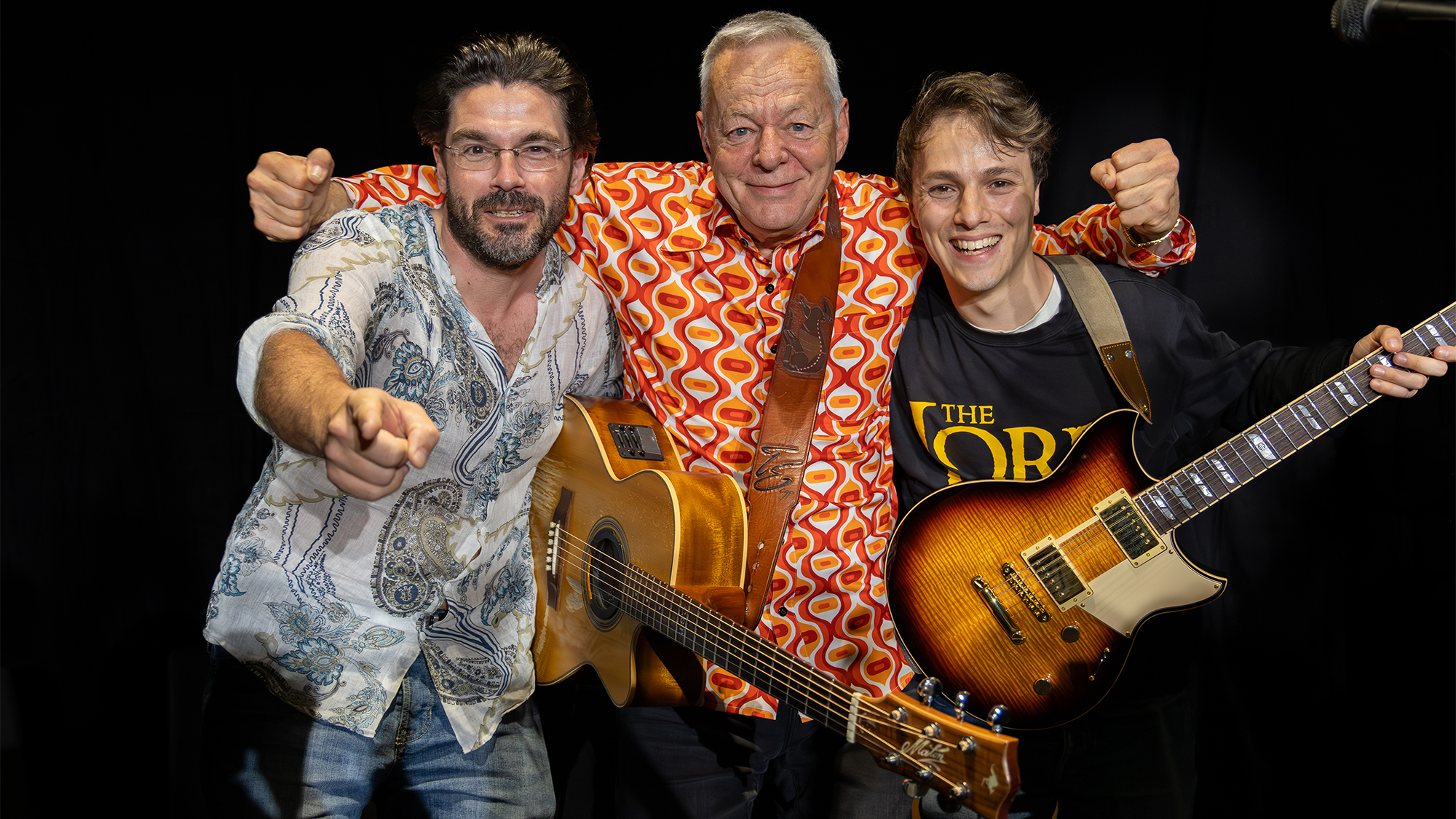
How do you quickly assess and accommodate for the broad variety of skill sets?
Dreamcatcher gives people a questionnaire about skill level and encourages campers to provide a very honest assessment. Sometimes people send us a video of their playing, and then we put them into an appropriate category. The thing about the camp is it doesn't matter if you're a beginner, you’re still going to learn a lot. You’re going to get valuable information from people with a lot of experience. And this is so important. The people I hire to come and teach all feel the way I do. It’s like, “Are you willing to put in the work?”
We live in the real world. We set the example of people making a living playing the guitar. And that’s a good point of view to come from rather than, “I want to be a star. I want to be rich.” We make our mortgage payment and our car payment and put our kids through school playing the guitar, so we better have it together, you know?
On the other hand, I don’t discourage people who only play for their own pleasure at home. I mean, some of the best advice I’ve given people are married men whose wives say to me, “Oh my God, he plays the same thing over and over again, and blah, blah.” I always say, “Listen, don’t practice in front of your wife. Don't practice in front of anybody, because only we need repetition. Everyone else hates it.”
Can you cite an example of another teacher’s style?
When Frank Vignola was one of the teachers, he would show people songs by teaching the class the chords, and then they’d all strum together as he would switch to the melody while they accompanied him.
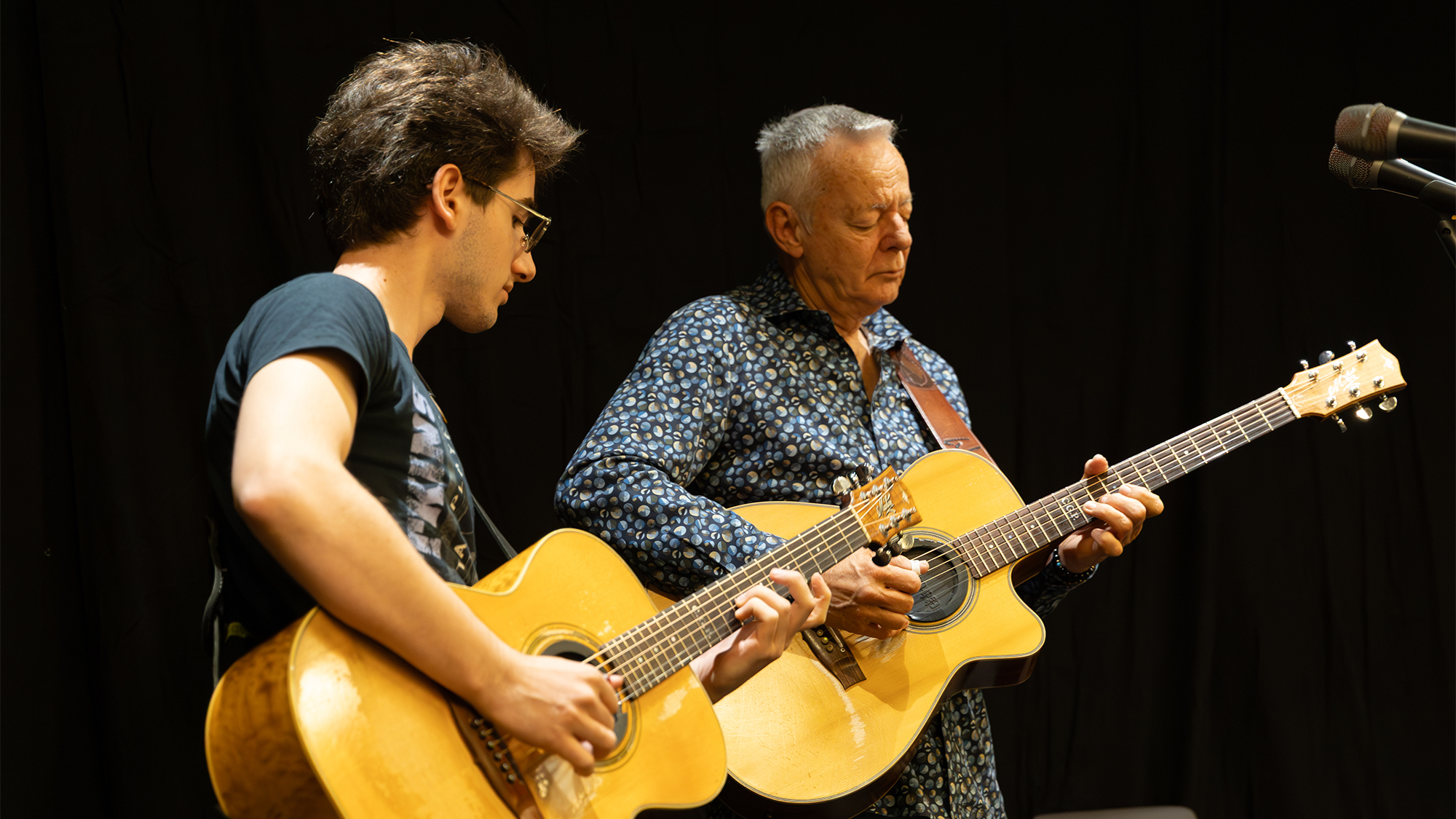
How about mentoring sessions?
Some of the other teachers do mentor sessions as well, and I do as many as I can every day. Sometimes people just want to sit and tell you something. Or they might want to ask you something personal, and that’s okay. On the first day, I always tell people that I’m ready and willing and able to talk about anything you want. It doesn’t have to be about music. Sometimes people talk about what they're struggling with, and it might even be a family issue. No matter what the conversation is about, I try to get right to the point because there is such demand with between 150 and 180 campers.
How much focus is on acoustic compared to electric guitar topics?
My part of the program is mostly acoustic, but one of the things I demonstrate is how to get a sound when you plug into an amp. Ninety-nine out of 100 people don't really know how to use a pickup or an amp properly. Most people make the same mistake. They take the amp off the floor, stick it up on a chair, point it at themselves, and it's like, “Hello!” That’s exactly what you don’t do. Instead, put the amp on the floor and face it away from yourself, so you get it in the P.A. Then turn it up until it sounds right.
But of course, sometimes I feature electric guitar players at my camp, and they talk about what’s important to them as far as how they get their sound, getting a good tone, and things like that.
How about genre focus?
Well, I like so many styles. Someone’s always going to ask for “Blue Moon” or something like that where they want me to demonstrate how to play with a swing feel. I’ll also demonstrate a kind of piano style as well as straight ahead bluegrass and stuff like that. I tend to focus on playing songs and songwriting.
On the first day, I always tell people that I’m ready and willing and able to talk about anything you want. It doesn’t have to be about music.”
— Tommy Emmanuel
How about the breakdown of main components: technique, composition, performance, gear, business, etc.?
You hit the nail right on the head. I try to cover everything, and I always tell the audience that I’m speaking from my own experience. I’m not saying that everything I know is right. I’m just telling you what works for me.
Do a lot of players come in with no experience reading music whatsoever?
That’s absolutely correct. I come from no experience, really. [laughs]
You don’t read music at all?
No, I don’t read a note. I’m a total ear player.
What’s the most difficult thing to teach?
Playing with feeling. I do a whole thing on how to get the guitar to sound like a voice when you’re playing melody. And I demonstrate harmonies, vibrato, chord substitution around melody and little surprises in songs that are typically vocal ideas.
But teaching how to play with feeling is like trying to explain how Eric Clapton’s guitar voice sounds so beautiful. That’s just how it is. One of the hardest things to get across to anybody is the fact that it's going to take time and a lot of experience before your voice, your own guitar style, shows up. You must play and live a lot before it appears.
What’s the most rewarding part of the experience from your perspective?
The fact that people get so happy. They arrive all full of fear, tension, worries and self-consciousness. It all starts to fade away on the first night because we let the fun begin. I let them know there’s no judge and jury here. We’re only here because we love to play, which is the same reason you’re here. I don’t care if you suck, and I don’t care if you are frigging brilliant. If I see you love it, I'll do anything to help you.
Visit Dreamcatcher for information on Tommy Emmanuel’s Guitar Camp U.S.A. or to learn more about upcoming events.
Jimmy Leslie is the former editor of Gig magazine and has more than 20 years of experience writing stories and coordinating GP Presents events for Guitar Player including the past decade acting as Frets acoustic editor. He’s worked with myriad guitar greats spanning generations and styles including Carlos Santana, Jack White, Samantha Fish, Leo Kottke, Tommy Emmanuel, Kaki King and Julian Lage. Jimmy has a side hustle serving as soundtrack sensei at the cruising lifestyle publication Latitudes and Attitudes. See Leslie’s many Guitar Player- and Frets-related videos on his YouTube channel, dig his Allman Brothers tribute at allmondbrothers.com, and check out his acoustic/electric modern classic rock artistry at at spirithustler.com. Visit the hub of his many adventures at jimmyleslie.com
